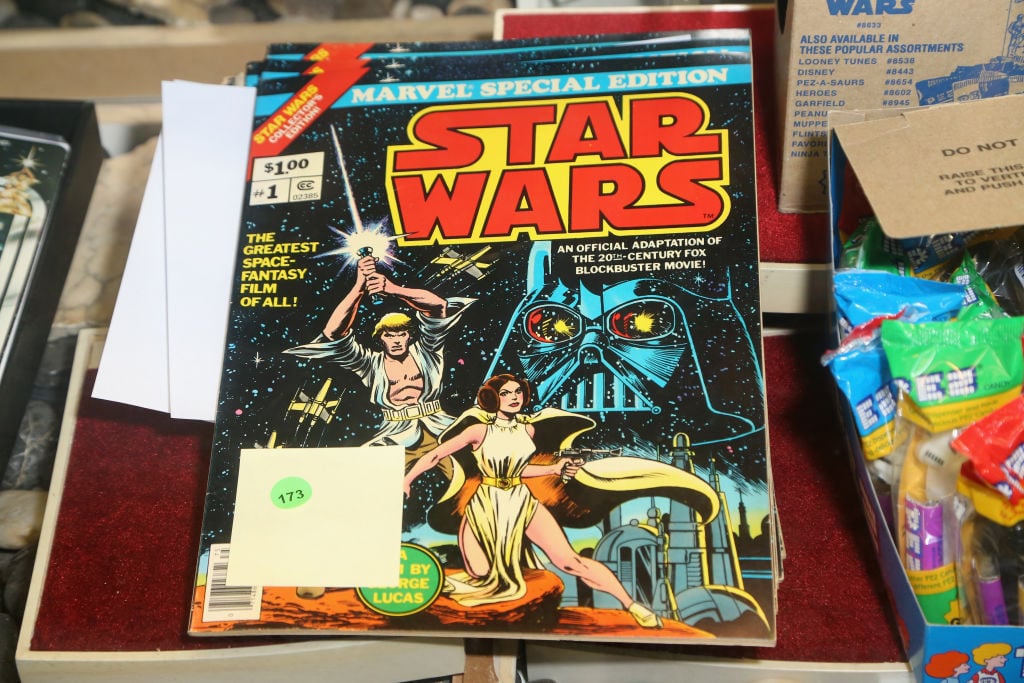‘Star Wars’ Has Always Been Anti-Authoritarian and Is Social Commentary that Is More Than Relevant Today
In the grand scheme of things, it’s very easy to get caught up in the cool starfighters, lightsaber duels, and effects of Star Wars. How can you not, right? But the underlying message of all of George Lucas’ movies in the faraway galaxy is anti-authoritarian and always has been. It was social commentary parallel to the Vietnam War back when it first came out and is still relevant today.

The Vietnam War inspired the rhetoric in ‘Star Wars’ and was anti-authoritarian
In 2018, filmmaker James Cameron interviewed Lucas for AMC’s “James Cameron’s Story of Science Fiction” series on YouTube. They talked about how the movies were anti-authoritarian and why Lucas wrote them that way.
To answer that, Lucas explained how he “came out of anthropology” and focused mainly on social systems. He was far more interested in asking the question, “How do the people react to [fancy tech], and how do they accommodate them?” rather than focusing said tech and other sci-fi aspects.
In doing so, Lucas created a world that was not too different from our own, but from the side of the “little guy” in contention with a big empire or government. Star Wars is fundamentally anti-authoritarian. And purposefully done because of the Vietnam War, which ended around two years before A New Hope premiered.
Cameron points out that the Rebels would be considered modern-day terrorists by some, and Lucas noted that they would have been equivalent to the Viet Cong in Vietnam in 1977. He said it was very “colonial, we’re fighting the largest empire in the world… and it was the same thing with the Vietnamese.”
He also said that, in 2018, there was some irony because, in both his science fiction and in real life, “the little guys won.” He continued with, “And the big highly technical, English Empire, the American Empire, lost. That was the whole point.”
‘Star Wars’ has never been about war, but rather striving for peace and justice amid bad leadership
When audiences watched Star Wars in 1977 and when they watch it now, Americans were the big scary Empire they saw on-screen. America wasn’t the only nation to inspire the bad guys though; the overt parallel between the Empire and Nazi Germany is rampant. From the literal name “Stormtroopers” to the dictatorship we see with Palpatine, it’s obvious that they mirrored the once fascist regime.
Star Wars has always been anti-war and anti-imperialism, in addition to the aforementioned themes. Sure, it has “war” in the title, but it has always been for the smaller powers. It focused more on how their heroes can achieve peace within a wartorn society. The Empire is a parasitic dictatorship; how can these rebels dismantle that huge power structure?
During the interview for AMC, Lucas said that America “never got it.” He continued: “We never said, ‘Wait this isn’t the right thing to do.’ And we’re still struggling with it.”
Cameron brought up the reason these empires in the past have fallen, which is because of poor leadership and government. With Senator Padmé Amidala’s line — “So this is how liberty dies. With thunderous applause” — it really hits home that whole message.
The Jedi Order is the best example of a noble system that is soured by war
Maybe the best example where Star Wars showed how power and war destroyed something meant for good is the Jedi Order. They’re meant to be peacekeepers, sheriffs to the galaxy.
Even down to their weapons, they were meant for peace. Sure, the lightsabers are used in battle, but it’s meant for peace against aggressors who would want nothing less than chaos, hate, and destruction. As Obi-Wan Kenobi said when he shot General Grievous, guns are an “uncivilized” weapon in comparison to the lightsaber. Jedi aren’t meant to use it to kill, unless they have no choice. And the fact that the heat from the laser can cauterize a wound instantly is another important, “peaceful” (if you will) feature.
However, when the Republic falls into a war against the Separatists, which are planets that left the Republic because they didn’t feel seen, the Jedi choose a side. They no longer were working toward peace by being mediators or neutral. They sided with the Republic and furthered war. They became generals in the military and really played into the politics of it all.
There were so many casualties and collateral damage, which we see a lot through Ahsoka’s story, specifically. The whole reason she left the Order is that she didn’t see herself aligned with the Jedi anymore. And in Season 7, she hears about the death of the Martez sisters’ parents, due to a Jedi mission. She then sees it through Obi-Wan’s reluctance to help Mandalore.
“I understand, that as usual, you’re playing politics,” she tells him. “This is why the people have lost faith in the Jedi. I had too.”
From peacekeepers to generals, the cost of violence and war is what essentially leads to a lot of mayhem. And, of course, the establishment of the very authoritarian Empire.


